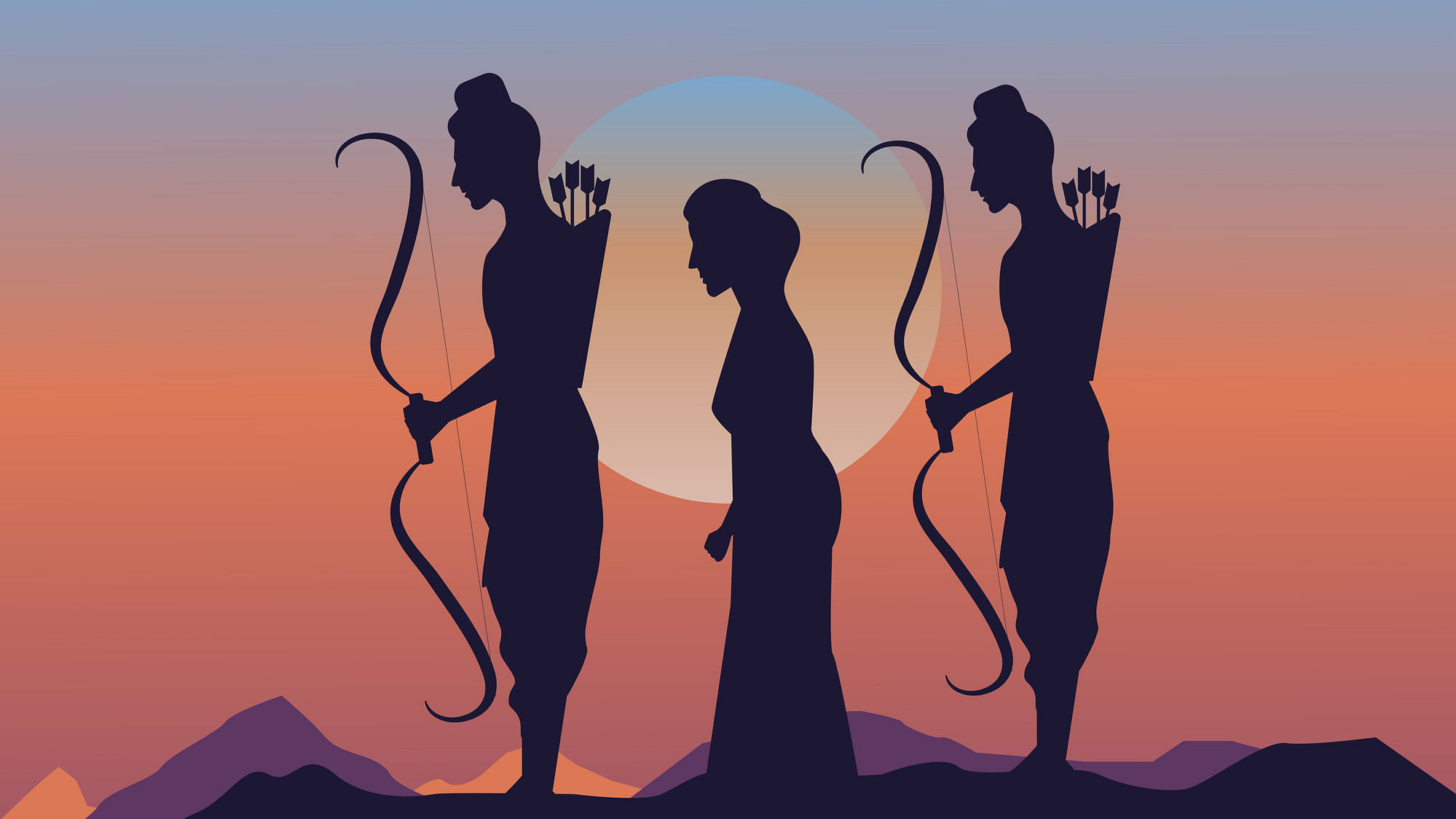
There has been a perpetual conflict pervading the intellectual-religious-ethical space in India since the late 1940s - the conflict between two alternate conceptions of the same deity.
The assassination of Mahatma Gandhi in 1948 brought one clear division in Indian thought to the fore: The division between those who feel that Lord Ram was best remembered as Gandhi saw Him, even as he was shot to death, and those who think He is best remembered through the battle-cry 'Jai Shri Ram', even as people are being shot to death.
The division of Hindutva into soft Hindutva and hardline Hindutva indicates this. Many members of Hindu society believe in and accept the latter and partake of the joys and sorrows of those who are trying to create 'Akhanda Bharat', while dwindling numbers believe that the right way to embody 'Hindu-ness' or 'Hindutva' is to follow Ram as an ideal, and espouse values such as leadership, bravery, honour and respect as has been represented by Him for millennia.
Some believe that these two conceptions are not irreconcilable, but if we observe any debate between one who believes in BJP and one who doesn't, it is evident that there is a divide in the Hindu community. It may not be openly recognised by most that this is, in fact, a conflict between two different conceptions of the same deity, but since the conflict exists in ideological space at the very least, it is possible that the Hindus who disagree with the rightists have actually a very different conception of what following Ram entails.
This conflict is not limited to just religion or politics but to the very idea of 'Ram Rajya' or the 'ideal' state. To analyse further, a few steps need to be taken into the annals of history. In the fourth century BC, the Greek polymath and philosopher Plato suggested his theory of the Ideal State. This was a state he envisioned in which all sorts of drastic measures would be taken to overhaul society, including separating children from parents at birth and raising them in barracks and training people based on merit and specialisation into roles of either philosopher kings, military or economic agents. The goal of this project was purported to be the establishment of justice. Plato's ideal state was to be based on an abstract metaphysical, moral principle, namely the Good or the Just.
More than two thousand years later, a group of politicians in Germany decided to create their version of an Ideal State. This state was to be based on strict scientific principles based on the knowledge of the day, and involved meritocracy to such an extent, that the 'weak' and 'disabled' were to be executed for posing a threat to the ideal world of an ideal human race, a race which was poised to be the true inheritor of the planet. So great was their dedication to creating an ideal world that they even limited the very definition of this ideal to the considerations of the nationalism of their own race, which was, in fact, the race poised to rule the world as they saw it.
Soon after this group of people were executed by most of the leaders and soldiers of the rest of the world, India gained independence from some of these latter leaders. The leader of the Indian independence movement was a man who had his own conception of an ideal state. He called it 'Ram Rajya'. This man believed that this would entail a society, culture and polity that involved the rule of 'Truth' or 'Righteousness'. He felt that the force that had been under assault by colonialists the world over was the force for truth, non-violence, and justice, and he took inspiration from Lord Ram as a symbol for these values. Less than one year later, he was assassinated. The last words out of his mouth were 'Hey Ram', a call of almost divine moral anguish over the fate of his country, which was snatched from him. The man who assassinated this person was a follower of a parallel movement going on in India at that time. This movement was what eventually gave credence to the call of 'Jai Shri Ram' in political circles. This was the Hindutva movement, which saw Ram, not as Gandhi saw Him, but as a war-like figure, the foot-soldiers of whom would be ready to burn, kill, loot, torture, rape, and thrash anyone and everyone who opposed Him, as they saw it.
Today, this movement is at the height of its political career, and even though soft Hindutva is failing, and the old conception of Hindu-ness is dying, Gandhi is being publicly insulted, and those who espouse truth and moral values are being called 'weak' and 'disabled', the deity Ram looks on from above, and probably laments at what has happened to his old Rajya today.
(The author is a research scholar)
Disclaimer: The views expressed above are the author's own. They do not necessarily reflect the views of DH.